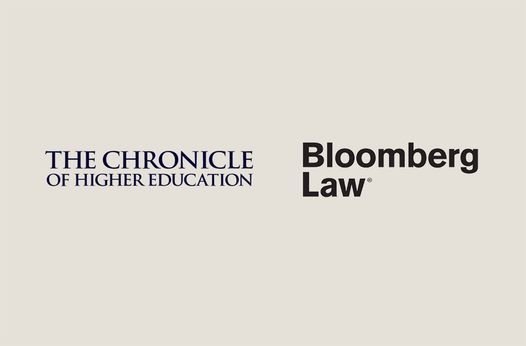Consumer & Class Action Litigation Newsletter - August 2013
Hinshaw Alert | 6 min read
Aug 5, 2013
- CFPB Taking Consumer Debt Collection Complaints
- The First Circuit Holds That Actions Taken to Foreclose Do Not Create an Adverse Claim Between the Mortgagor and Mortgagee
- District Court in Florida Holds Rule 68 Offer of Judgment Mooted TCPA Action Before Motion for Class Certification Had Been Filed
- New Requirements Imposed Upon Debt Buyers in California
CFPB Taking Consumer Debt Collection Complaints
As of July 10, 2013, the Consumer Financial Protection Bureau (CFPB) is taking complaints from consumers about all types of consumer debt collection, including auto loans, credit cards, medical bills, mortgages and student loans. Complaints may be lodged with the CFPB by telephone, fax or internet. Under this new system, the CFPB expects to reach a decision regarding the majority of the complaints within 60 days.
The CFPB will collect the complaints and conduct a basic review within three days of receiving them. The complaint will then be delivered to the collection agency, which will have 15 calendar days to respond to the complaint. An agency may request an additional 60 days to respond, although the CFPB expects to keep tight control over its calendar.
Responses to the complaint, including supporting information, will be provided to the consumer. The consumer will have 60 days to review and dispute the response. If the consumer disputes the response, the CFPB will engage in further investigation if warranted. If an investigation is commenced, a collection agency will have 10 days to respond to the CFPB. At this stage, the communication will be between the collection agency and the CFPB only, not the consumer.
A complaint may be closed according to the following categories:
- Closed with monetary relief.
- Closed with nonmonetary relief (which may include steps taken to address a consumer's complaint involving nonmonetary requests).
- Closed with explanation tailored to the individual complaint.
- Closed without relief or explanation.
The CFPB also developed five templates of action letters available on its website for use by consumers in communicating with collection agencies.
The First Circuit Holds That Actions Taken to Foreclose Do Not Create an Adverse Claim Between the Mortgagor and Mortgagee
The U.S. Court of Appeals for the First Circuit in Lemelson v. U.S. Bank National Association, Trustee, in affirming a dismissal pursuant to Fed. R. Civ. P. 12(b)(6), ruled that the efforts by defendant, a bank as trustee, to foreclose on plaintiff borrower/mortgagor's home did not constitute an "adverse claim." The borrower had filed an action pursuant to a seldom used Massachusetts "try title" statute, Mass. Gen. Laws ch. 240, §§ 1-5, seeking an order invalidating an assignment of his mortgage loan. To sustain the "try title" action, the borrower was required to plausibly allege that the record title to the property was clouded by an actual or potential adverse claim to title. The borrower attempted to argue that the actions taken by the bank as trustee to foreclose pursuant to the power of sale in the mortgage resulted in an adverse claim to title.
The First Circuit rejected the borrower's argument because in a title theory state like Massachusetts the "mortgage splits the title [to a property] in two parts: the legal title, which becomes the mortgagee's and secures the underlying debt, and the equitable title, which the mortgagor retains." The court held that both legal title and equitable title were prima facie consistent with each other and were actually two separate, but complimentary claims to the property.
Thus, a borrower in a title theory state is hard-pressed to allege that a mortgagee's actions taken to foreclose pursuant to the terms of the mortgage create an adverse interest in title. Indeed, there cannot be an adverse claim before the foreclosure is complete because the borrower's equity of redemption, namely, the right to redeem, "endures so long as the mortgage continues in existence" and the legal title held by the mortgagee is defeasible if the borrower exercises the right to redeem.
Lemelson v. U.S. Bank National Association, –––– F.3d –––– (1st Cir. July 1, 2013)
District Court in Florida Holds Rule 68 Offer of Judgment Mooted TCPA Action Before Motion for Class Certification Had Been Filed
The U.S. District Court for the Southern District of Florida held that a Fed. R. Civ. P. 68 offer of judgment that offered everything plaintiff could recover on his individual TCPA claim mooted the action before a motion for class certification had been filed. The court applied and followed the reasoning of the recent U.S. Supreme Court decision in Genesis Healthcare Corp. v. Symczyk, ––– U.S. ––––, ––––, 133 S. Ct. 1523, 1528, 185 L. Ed. 2d 636 (2013), and quoted the following from Symczyk: "If an intervening circumstance deprives the plaintiff of a 'personal stake in the outcome of the lawsuit,' at any point during litigation, the action can no longer proceed and must be dismissed as moot."
In applying Symczyk, the district court also cited Damasco v. Clearwire Corp., 662 F.3d 891, 895 (7th Cir. 2011), to determine that a complete offer of judgment made prior to a motion for class certification moots the lead plaintiff's claim, and therefore moots the action.
The district court further followed Damasco and rejected the class representative's policy argument that a defendant should not be allowed to "pick off" a lead plaintiff to avoid jurisdiction over the putative class action. The court also reasoned that the procedure espoused in Damasco could be used by plaintiffs to avoid such consequences: class representatives could move for class certification very early in the case and then move to stay the determination of class certification until after future discovery had been conducted. The district court did not find persuasive the argument that "this solution would provoke plaintiffs to move for certification prematurely, before they have fully developed or discovered the facts necessary to obtain certification." The court held that "if the parties have yet to fully develop the facts needed for certification, then they can also ask the district court to delay its ruling to provide time for additional discovery or investigation."
Keim v. ADF MidAtlantic, LLC, Case No. 12–80577–CIV. (S.D. Fla. July 15, 2013)
New Requirements Imposed Upon Debt Buyers in California
Debt buyers in California will have to comply with additional requirements before collecting on debts sold or re-sold after January 1, 2014, following the state's enactment of the Fair Debt Buying Practices Act (Act), S.B. 233. Once in effect, the Act will bar debt buyers from engaging in written collection activities unless they possess extensive documentation evidencing the validity of the debt. Specifically, debt buyers must have documents showing: (1) that the buyer is the sole owner of the debt; (2) the debt balance at charge-off, and interest and fees assessed after charge-off; (3) the date of default and last payment; (4) the name, address and account number of the charge-off creditor; (5) the name and last known address of the debtor as reflected in the charge-off creditor's records; (6) the full chain of title for debts with multiple purchasers; and (7) a contract or other document reflecting the debtor's agreement to pay the debt or that the charges were incurred by the debtor.
The initial written communication to the debtor must notify the debtor of his or her right to request the aforementioned documentation, and the debt buyer must provide this documentation within 15 days of the debtor's request. Further, when collecting on time-barred debt, debt buyers shall inform debtors that the debt is past the statute of limitations and whether the debt may be reported to credit reporting agencies under the Fair Credit Reporting Act.
The Act also imposes strict conditions upon debt buyers that sue debtors for the outstanding debt. Essentially, the debt buyer must allege in the complaint the information contained in the initial written communication, and no judgment can be entered unless the documents substantiating the debt can be produced and authenticated by sworn testimony. Failure to comply with these requirements can result in dismissal of the action.
Finally, the Act creates a private right of action for violations, including statutory damages up to $1,000, actual damages, attorneys' fees, and costs. In class actions, penalties up to the lesser of $500,000 or one percent of the collection agency's net worth may be assessed against the debt buyer upon a finding of a "pattern and practice" of violating the Act. However, debt buyers are exempted from liability for violations occurring as a result of bona fide error despite the maintenance of reasonable procedures to prevent the violation.
Creditors and agencies collecting upon re-sold debt in California should review their practices and procedures to ensure compliance with the Act in the next year.
Fair Debt Buying Practices Act, S.B. 233
Featured Insights

Employment Law Observer
Dec 8, 2025
12 Days of California Labor and Employment: 2025 Year in Review

Press Release
Dec 4, 2025
Hinshaw Recognized by the Leadership Council for Legal Diversity as a 2025 Top Performer

Press Release
Nov 25, 2025
Hinshaw Legal Team Secures Summary Judgment in Gas Station Injury Case

Press Release
Nov 18, 2025
Hinshaw Releases the Third Edition of Duty to Defend: A Fifty-State Survey

In The News
Nov 13, 2025
A Profile on Neil Rollnick: After 57 Years in Practice, He Has No Plans to Retire

Press Release
Oct 22, 2025
Hinshaw & Culbertson LLP Launches New Website and Refreshed Brand









